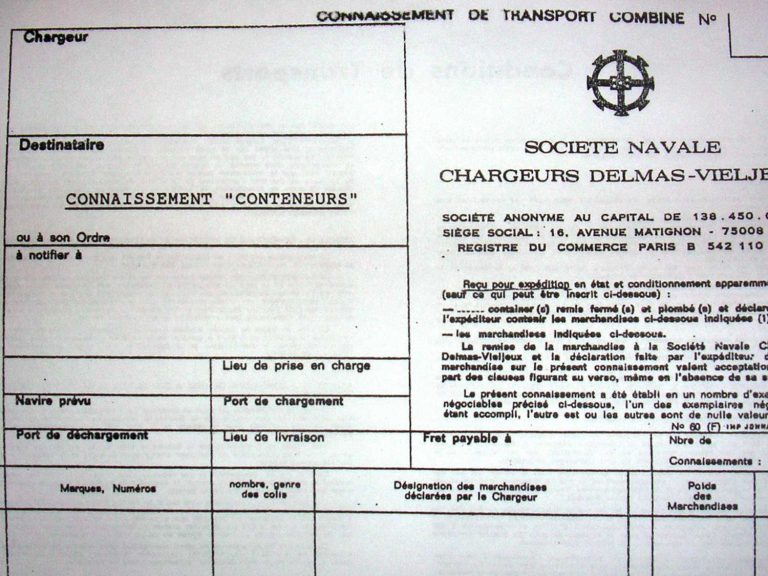
Date:
Metro lead the way with ocean freight electronic bill of lading
Just weeks after the Electronic Trade Documents Bill was presented before Parliament, Metro has commenced its first trial shipment with an electronic bill of lading (eBL), on Hapag Lloyd, which was a first for the German carrier too.
Following large-scale frauds and disruption to global trade due to the impact of the COVID pandemic, the digitisation of physical shipping documents is becoming much more significant, with the Electronic Trade Documents Bill, which will allow for the legal recognition of electronic versions of bills of lading, currently working its way through parliament.
Ministers at last year’s G7 meeting agreed that paper-based transactions are “a source of cost, delay, inefficiency, fraud, error and environmental impact” in a bid to move towards global adoption of electronic bills of lading (e-Bills), which Mckinsey & Company estimate could save $6.5 billion in direct costs and enable $40 billion in global trade.
Unlike the paper bill of lading, which is time consuming, risky (can be forged/lost) and expensive, the eBL is secure and extremely cost effective, with a host of added benefits:
- Reduced costs due to savings on postage and time to handle physical paperwork
- No risk of losing eBL
- Removal of costs associated with a complex procedure to release without the Original BL at destination, including weeks of D&D
- Quick and secure transaction with one click of a button
- Eco-friendly solution with no paper and physical movement
- Same legal protection as an Original Bill of Lading
- eBL can be tracked online, unlike paper OBL’s
The Law Commission was tasked by the Government to set out reforms to the legal status of trade documents and following a consultation period last year, the Commission published its recommendations in March, with the Electronic Trade Documents Bill now going through the House of Lords, before returning to the House of Commons to pass into law.
The Bill of lading serves three key functions:
- As a receipt, confirming that the goods have been loaded on board the vessel
- As evidence of the contract of carriage, between the ship-owner and the shipper and/or the lawful holder of the bills
- As a document of title to the goods.
The electronic bill of lading (eBL) Metro are currently testing fulfils the functions of a receipt and evidence of a contract of carriage and, when the Electronic Trade Documents Bill completes its passage, the eBL will also fulfil the function of a document of title.
In the vanguard of testing this new technology, so that Metro customers will be the first to benefit, the sea freight team will undertake further measured trials, including with shipments that involve banks in the release process and also with the full variety of partner ocean carriers that offer this option.
The first ‘trial’ customer said that they were “very impressed with the process” and Hapag Lloyd commented that “handling physical paper leads to processes that are cumbersome, outdated, time-consuming and error-prone. Hapag Lloyd has partnered with Wave BL to enable secure and quick BL release, saving costs for our customers. We firmly believe the future of the supply chain is offering digital solutions that are time and money saving, backed up by secure communication protocols.”
This is the future, now. The platform just needs confidence building, evidence that it is 100% evolved and that the integrity is unquestionable. We will continue to update and reassure.
We have been utilising similar models and platforms in air freight, with our partner airlines, for many years and this is an exciting evolution in the ocean freight environment.
Metro is developing the technologies and platforms that will integrate with electronic bills of lading (eBL) and members of the bodies that drive the technology standards and frameworks for a standardised industry e-bill of lading (eBL).
Simon George, Metro’s Technical Solutions Director and a member of the illustrious UN/CEFACT forum. “Even partial eBL adoption will save £ Billions, but mass adoption of an industry-standard eBL, requires robust technology, acceptance by governments, banks and insurers as well as open collaboration.“
Please contact us for further Information and we will share the latest progess and updates and how this platform can benefit your own continued global trade growth ambitions.
